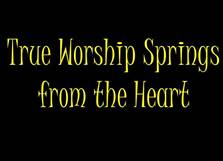 There was once a man with a great prayer life and a bothersome cat. Wishing to be left alone while he prayed, he leashed the cat to the post of his bed where it couldn’t reach him. That man had a daughter who wanted a great prayer life too. So she went out and bought a bed with big posts, and picked up a cat from the shelter so she could leash it to the bed post while she prayed. That woman had a son, and he always respected his mother’s faith so he went out bought a bed like hers, a cat like hers, leashed it to the bed post every day for an hour or two and went out with his friends to play tennis.
There was once a man with a great prayer life and a bothersome cat. Wishing to be left alone while he prayed, he leashed the cat to the post of his bed where it couldn’t reach him. That man had a daughter who wanted a great prayer life too. So she went out and bought a bed with big posts, and picked up a cat from the shelter so she could leash it to the bed post while she prayed. That woman had a son, and he always respected his mother’s faith so he went out bought a bed like hers, a cat like hers, leashed it to the bed post every day for an hour or two and went out with his friends to play tennis.
Religiosity is a natural reaction of stubbornly sinful people to spiritual pressure whether internal or external.
It was the habit of the strictest of the Jewish observers during Jesus day to go to elaborate lengths to both be seen keeping up religious traditions and to developing complex rationales and methods for getting around them while looking like they were keeping them. They were not alone.
The third great contribution of the prophets that transformed the world was the idea that true religion sprang from the heart and was not, as we’ve noted about the pagans in part 2 of this series, about ritual words and ritual actions.
The actions moderated by the legal codes of the nation had to deal with what could and could not be accomplished in a court setting, though Mosaic commands, like the wisdom writers, often appealed to issues of the heart in order to establish the emotional context in which a covenant people should engage one another. Thou Shalt not steal gives way to thou shalt not covet… the place from which sins like theft, murder, and adultery sprang.
To the pagan, the gods were not being to be trusted implicitly; they were imperfect, selfish, fickle. What they did have was power. That power was available to them if they performed the right rituals, prayed the right prayers, made the right religious displays of devotion. In pagan theology, the gods knew nothing of their hearts, only their actions, save for those moments when their actions revealed something true about their hearts.
In prophetic theology, however, YHWH the all-seeing, all-knowing, all-wise, omnipresent, omnipotent creator of all covenanted with his people in order to use them to do a work of redemption among the nations. His love for all of his creation, particularly mankind upon whom he stamped his image—that they might be filled with his spirit and function in relationship with him as his regents in the world—was a basic tenant. In short, YHWH could be trusted implicitly and demanded to be worshipped honestly.
Religious symbols are not wrong, per se. The earliest systems of worship in Israel were filled with ritual performance. Ritual was a language in the Ancient world and God could speak it too. He crafted the symbols and rituals to teach his people the truth about life in community before an all-seeing creator, the true processes by which a sinner finds acceptance before the Holy, and to draw them to himself. These symbols were not, as they were among the pagans, processes by which the worshipper became a participant in the outcomes of the deity’s work (Sympathetic Magic); they were, rather, a call to devotion and witness to the one who needed nothing from men but loved them anyway, working to save them from the consequences of their sin against him.
YHWH has not truck with symbols without substance, ritual without righteousness, fasting without faith, bleating without belief, prayer without penitence, yowling without yearning, sacrifice without sincerity…. You get the point.
Jesus said it best and changed the way religion would be conceived forever.
Mar 7:20-23 “What comes out of a person is what defiles him. For from within, out of the heart of man, come evil thoughts, sexual immorality, theft, murder, adultery, coveting, wickedness, deceit, sensuality, envy, slander, pride, foolishness. All these evil things come from within, and they defile a person.”
And
Mat 22:37-40 And he said to him, “You shall love the Lord your God with all your heart and with all your soul and with all your mind. This is the great and first commandment. And a second is like it: You shall love your neighbor as yourself. On these two commandments depend all the Law and the Prophets.”
This is true religion… always has been, always will be.




